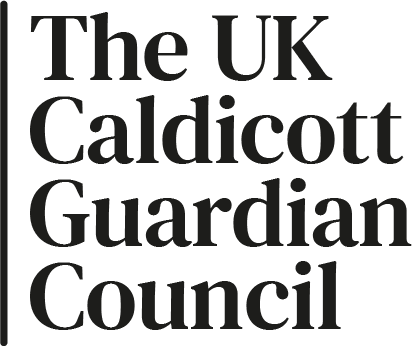Get to know UKCGC vice chair, Helen Dyer
Helen Dyer is the new vice chair of the UK Caldicott Guardian Council. A former children’s nurse with a strong background in information governance, she brings clinical insight and a patient-first ethos to the role. In this Q&A, she reflects on her journey and priorities.
Your professional background includes both frontline practice and management information governance. Could you tell us about your journey to becoming a Caldicott Guardian, and how your experience as a healthcare professional has shaped your view of confidentiality and data ethics?
I trained as a children's nurse, where the motto "child first and always" was embedded as my first principle from day one. Over time, that principle has evolved - first to "patient first and always" and more recently to "data subject first and always." I've realised that I enjoy working in roles that put individuals at the centre, rather than focusing solely on the organisation, especially as organisational structures and priorities change so frequently.
Of course, as a Caldicott Guardian, I tend to approach decisions by thinking about the individual behind the data, rather than defaulting to business processes or financial implications. That perspective feels refreshing, and in some ways, I realise I have come full circle.
As you step into the vice chair role at UKCGC, what are you most keen to focus on over the coming year? Are there any areas you feel need more visibility or support across the network of Caldicott Guardians?
Listening is our first priority. We want to really understand what challenges Caldicott Guardians across different settings are facing. Once we have that insight, I look forward to helping develop resources and support that are targeted and genuinely useful.
I’m also very eager to support smaller organisations, often those sitting outside of formal NHS structures, where resources are more limited and the role of the Caldicott Guardian can feel especially stretched.
New Caldicott Guardians can sometimes feel overwhelmed by the complexity of the role. Could you share something you're still learning or grappling with yourself, to show that even the most experienced Caldicott Guardians are on a journey too?
I, too, still get overwhelmed by the complexity of the role! Currently, I'm grappling with balancing the risks and benefits of using AI in direct care, especially in ways that preserve an organisation’s trustworthiness. There's comfort in knowing that many of my colleagues are looking at the same conundrum, and we can learn together.
Remembering that it is a journey is also important. I've been watching Race Across the World 2025 and can see some interesting analogies. The teams know where they are going and how little money they have, but not much else. They have to be flexible, carry little baggage, wait for some parts and run for others, be brave, communicate well and make friends along the way. Worst of all, they don't know how they are doing until it's too late to fix it!
From your experience, what’s the most effective way for Caldicott Guardians, especially those in smaller organisations or social care settings, to build confidence and feel less isolated in their decision-making?
By inviting challenge and listening carefully to other people's views. Part of this is regularly accessing peer support and seeking out other Caldicott Guardians.
Personally, I really value the UKCGC Breakfast Club and the Digital Care Hub's Caldicott Guardian Learning Network. They offer a safe and informed space to share challenges and learn together. But I also know that if I'm facing a particularly challenging problem, I can contact the UKCGC directly and draw on their experience and expertise. The sense of connection makes a real difference.
With public confidence in data use under increasing scrutiny, what role do you think Caldicott Guardians play in strengthening trust, particularly as we move into more digitally driven models of care?
The Trust triangle from Frei & Morriss highlights logic, authenticity, and empathy as the cornerstones of trust. Applying this to data use, it’s clear we must give more attention to Caldicott principle 8: No surprises!
This principle goes beyond simply publishing a privacy notice. It calls for genuine two-way dialogue with the public. That dialogue doesn't need to be expensive or overly formal. Our DPIAs demand consultation, but how else are we actively listening? What insights have we gathered about data subjects' understanding and expectations? Have they been published?
As a Caldicott Guardian, my final sense check before deciding what advice to offer is often: How might this advice impact trustworthiness? It’s a simple but vital question. Imagine the impact if every Caldicott Guardian in the UK had just one conversation a week with a service user. That’s nearly two million opportunities each year to build trust. And at risk of sounding like I watch too much TV, we could start our sentences with, How can I help?

